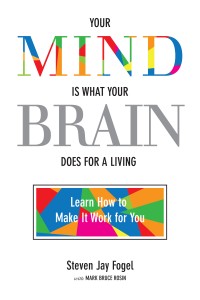The Transference Phenomenon

The reason we stay in an unsatisfying relationship is that our machinery can’t choose any of the three doors. When our machinery is running us, we cling to familiar pain at all costs and continue suffering because our perception is that we need the relationship and the only way to have it is to pay for it through suffering.
This isn’t just true for frog-in-hot-water romantic relationships. It’s the same with a frog-in-hot-water situation or series of situations that involve other types of relationships. A friend of mine had the experience of having three promising jobs in a row, all of which soon degenerated into disappointment and frustration. He felt each of his bosses was authoritarian and overly critical.
For eight years, my friend felt like a victim of bad bosses. Then, after quitting his third job, he started to reflect mindfully on his work experiences and to connect them to his childhood with his critical, controlling father. He recognized that, without realizing it, he’d been seeing his bosses through the limiting lens of the anger he felt toward his father, resenting any input his bosses had given him because he’d heard it not as input but as criticism and an unfair need to control him.
My friend had what Jung would call a father complex, which made him feel suspicious of and antagonistic toward older men in authority. His way of avoiding being a victim was to fight back with anger, even when fighting back was inappropriate.
After my friend had this insight, he was able to act mindfully and relate positively toward his future employers, in effect, changing his life. He also grew to understand the traumas in his father’s childhood that had programmed his father to be so critical and controlling, and he forgave him. His father became supportive and respectful of him, and they started to share good feelings for the first time.
Another way of looking at my friend’s experience with his bosses is that it’s an example of transference, a phenomenon I learned about in therapy. Transference is “the unconscious tendency to assign to others in one’s present environment feelings and attitudes associated with significance in one’s early life.”1 When we transfer our emotions unconsciously in this way, we’re relating to the person in our current life as if he or she were someone from our childhood, and this becomes the lens through which we are experiencing the other person. Years ago, the marriage counselor we went to pointed out to my wife and me that each of us had lost the ability to truly see the other accurately and that, when activated, we each saw the other as our respective mothers instead of seeing and relating to each other as the actual individuals we are.
For me, the biggest problem with transference is its stealth quality. I’ve found that it’s almost impossible in the moment to know that I am truly not talking to the other person but instead seeing the person as my mother and reliving past-based experiences that don’t apply in the moment.
An excerpt from my recent book, Your Mind Is What Your Brain Does for a Living, now available at Amazon.
- 20 Apr, 2015
- Posted by Steve Fogel
- 0 Comments



COMMENTS